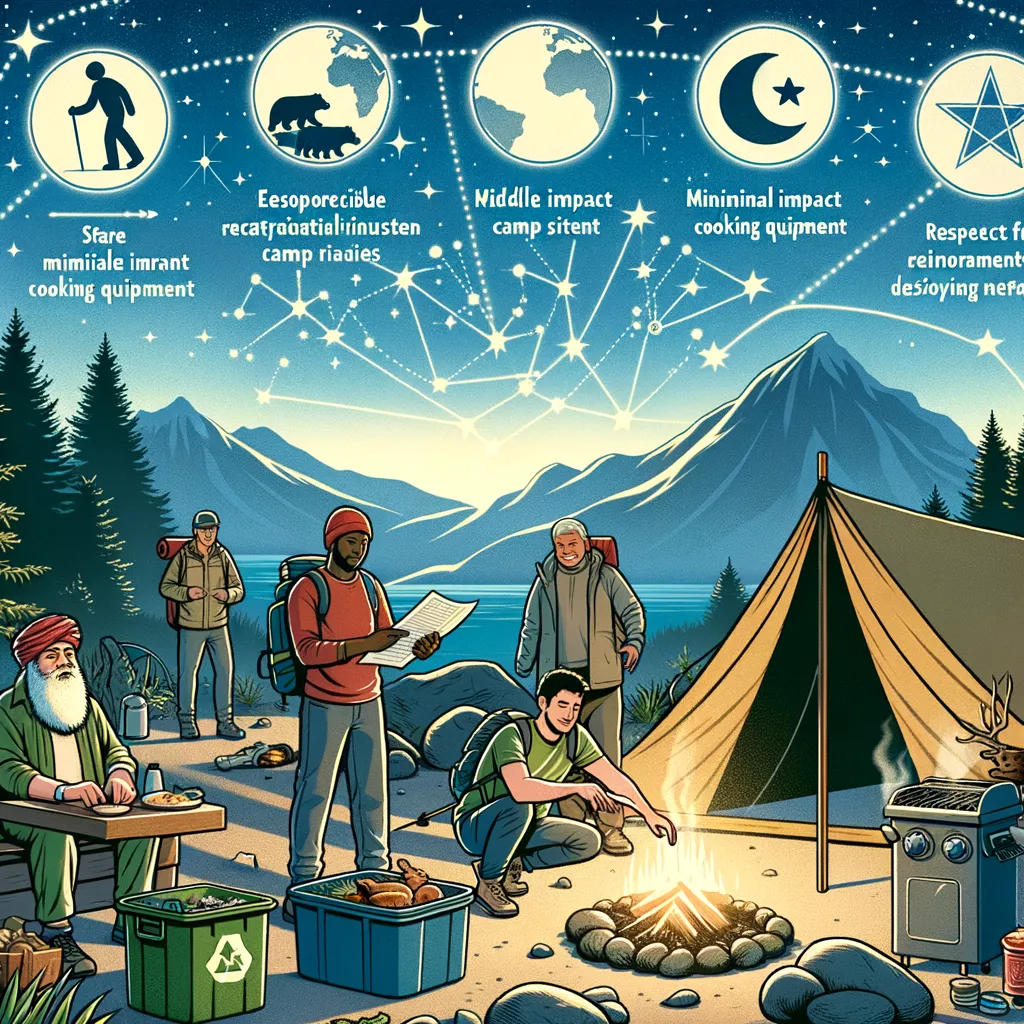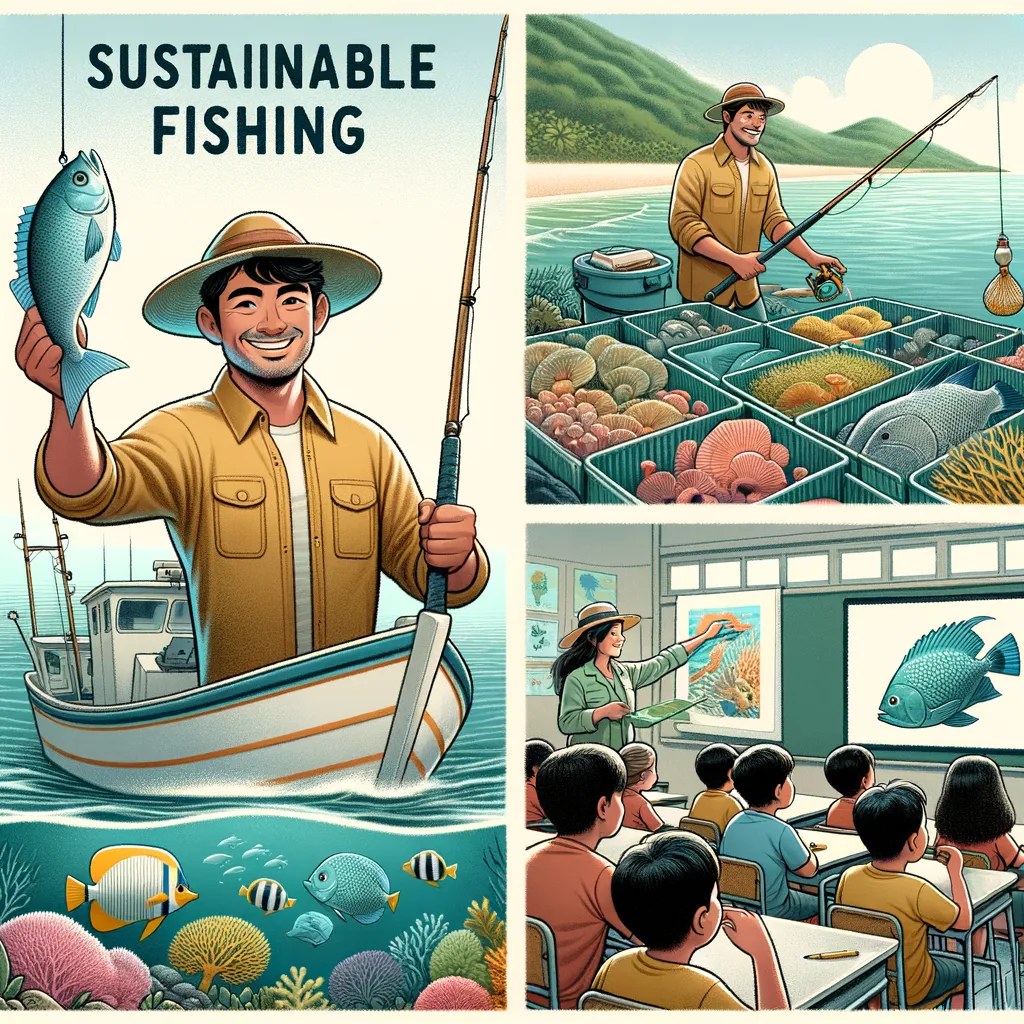Sustainable Camping Practices Around the World
Welcome, eco-conscious parents! As we venture into the great outdoors with our families, it’s more important than ever to introduce sustainable camping practices to our little adventurers. In an era where preserving nature has become crucial, camping offers a fantastic opportunity to teach our children about the beauty of the world and the importance of protecting it. From the lush forests of North America to the rugged outback of Australia, let’s embark on a journey to discover how we can enjoy the wonders of camping while minimizing our environmental impact. Whether you’re a seasoned camper or planning your first family outing, this guide will equip you with practical tips and inspirational ideas for making your next camping adventure more eco-friendly.
Before we dive deep into the heart of sustainable camping, let’s understand the basics. Camping is an outdoor activity that involves staying overnight in tents, cabins, or other structures, usually in natural areas. For more in-depth knowledge about camping and its roots, Learn more here.
If you’re looking for high-quality camping gear that aligns with your eco-friendly values, Camping essentials are just a click away. Now, let’s explore various sustainable camping practices around the world, tailored especially for families seeking to nurture a love for the environment in their children.
1. Leave No Trace Principles
At the core of sustainable camping lies the Leave No Trace principles, a set of guidelines designed to minimize our impact on the environment. Teaching your children these principles is a fantastic way to instill a sense of environmental responsibility while enjoying the great outdoors. These principles include planning and preparing, traveling and camping on durable surfaces, disposing of waste properly, leaving what you find, minimizing campfire impacts, respecting wildlife, and being considerate of other visitors.
2. Eco-Friendly Gear
Opting for eco-friendly camping gear is another significant step towards sustainable camping. Look for camping equipment made from recycled materials, solar-powered gadgets, and biodegradable products. By choosing sustainable gear, not only are you reducing your ecological footprint, but you’re also setting a powerful example for your little campers.
3. Waste Management
Managing waste efficiently is critical in conserving natural spaces. Encourage your family to practice recycling and composting while camping. Bring reusable bags, containers, and utensils to avoid single-use plastics. Educate your children about the importance of leaving campgrounds cleaner than you found them, and involve them in clean-up activities to foster a deep connection with nature.
4. Water Conservation
Water is a precious resource, especially in natural settings. Teach your children to use water sparingly while camping. Bring eco-friendly soap and ensure that all washing is done at least 200 feet away from natural water bodies to prevent contamination. Collecting and using rainwater for non-drinking purposes can also be a fun and educational activity for the family.
5. Energy Efficient Practices
Adopting energy-efficient practices is key to sustainable camping. Use solar chargers for electronic devices and opt for LED lights and lanterns. Encourage your family to enjoy daytime activities and appreciate the natural light to reduce dependence on artificial lighting. Discuss with your children the importance of energy conservation and how it contributes to preserving natural habitats.
Sustainable camping is not just a practice; it’s a lifestyle choice that educates and inspires. By adopting eco-friendly camping practices, families around the world can enjoy the serenity and beauty of nature while ensuring it remains unharmed for future generations. Stay tuned as we explore more avenues to make your camping adventures more sustainable and fulfilling.

5 Essential Tips for Parents Preparing for Sustainable Camping Practices Around the World
Welcome to our comprehensive guide, dear eco-conscious parents! Embracing the wilderness with your family is not just an adventure; it’s a golden opportunity to embed the values of sustainability and environmental stewardship in your children. As you prepare to set out into the great outdoors, from the green canopies of the Amazon to the serene landscapes of Scandinavia, our guide provides you with indispensable tips for sustainable camping that promises to be as enriching for the planet as it is for your family. Let’s delve into the essential preparations and practices that will make your camping experience truly sustainable and incredibly memorable.
To deepen your understanding of camping’s rich history and its evolving relationship with nature, feel free to explore more about its roots here. Also, if in search of top-notch, eco-friendly camping gear, discover a curated selection here to ensure your next outdoor excursion aligns perfectly with your green principles.
1. Understanding and Implementing Leave No Trace Principles
Central to sustainable camping is the comprehensive adoption of the Leave No Trace principles. These guidelines form the bedrock of eco-friendly outdoor conduct, emphasizing minimal environmental footprint. Familiarize your family with these principles, transforming each camping trip into an enjoyable lesson in environmental ethics. Key aspects include thorough planning, sticking to durable surfaces, proper waste disposal, leaving natural offerings undisturbed, minimizing campfire impacts, respecting wildlife, and ensuring a positive experience for all visitors. These principles not only protect our natural spaces but also cultivate a profound respect for nature among young campers.
2. Investing in Eco-Friendly Camping Gear
Choosing sustainable camping gear is a significant stride towards green camping. Prioritize products made from recycled materials, powered by renewable energy sources, and designed with biodegradability in mind. This move not only slashes your camping trip’s ecological footprint but serves as a powerful, practical lesson for your children on the importance of responsible consumer choices.
3. Prioritizing Waste Management
Efficient waste management is pivotal in preserving the pristine condition of outdoor spaces. Instill the habit of recycling and composting in your family, and pack reusable kitchenware to eliminate single-use plastics from your camping routine. Educate your children on the significance of leaving campsites in better condition than when you arrived, actively engaging them in cleanup efforts. Such practices strengthen their bond with nature and reinforce the importance of environmental stewardship.
4. Advocating for Water Conservation
Teach your children the value of water by using it judiciously during your camping trips. Introduce eco-friendly hygiene products and ensure all washing activities occur well away from natural water sources to avoid contamination. Collecting rainwater for non-drinking purposes can also be an instructive and engaging activity. These water conservation efforts highlight the scarcity of clean water and the importance of protecting our natural water bodies.
5. Embracing Energy Efficiency
Adopt energy-efficient practices to further reduce your camping footprint. Solar-powered batteries, LED lighting, and natural daylighting are excellent ways to conserve energy while camping. Dedicate time to enjoy and explore nature during the day to minimize the need for artificial lighting. Engaging discussions with your children about energy conservation not only informs them of its critical role in environmental protection but also encourages them to adopt these practices in everyday life.
Embarking on sustainable camping adventures offers families a unique avenue to bond, explore, and learn about the natural world and our place within it. By meticulously preparing and adopting eco-friendly practices, we can ensure that the beauty and diversity of our planet’s landscapes remain intact and vibrant for generations to come. Through these shared experiences, parents can instill a lifelong appreciation and respect for nature in their children, fostering the next generation of environmental stewards who are not just aware of sustainability but are active participants in its practice. Remember, every sustainable choice, no matter how small, contributes significantly to the well-being of our planet. Let’s make every camping adventure a testament to our commitment to preserving the Earth for our children and the many generations that will follow.
Disclaimer
The articles available via our website provide general information only and we strongly urge readers to exercise caution and conduct their own thorough research and fact-checking. The information presented should not be taken as absolute truth, and, to the maximum extent permitted by law, we will not be held liable for any inaccuracies or errors in the content. It is essential for individuals to independently verify and validate the information before making any decisions or taking any actions based on the articles.




